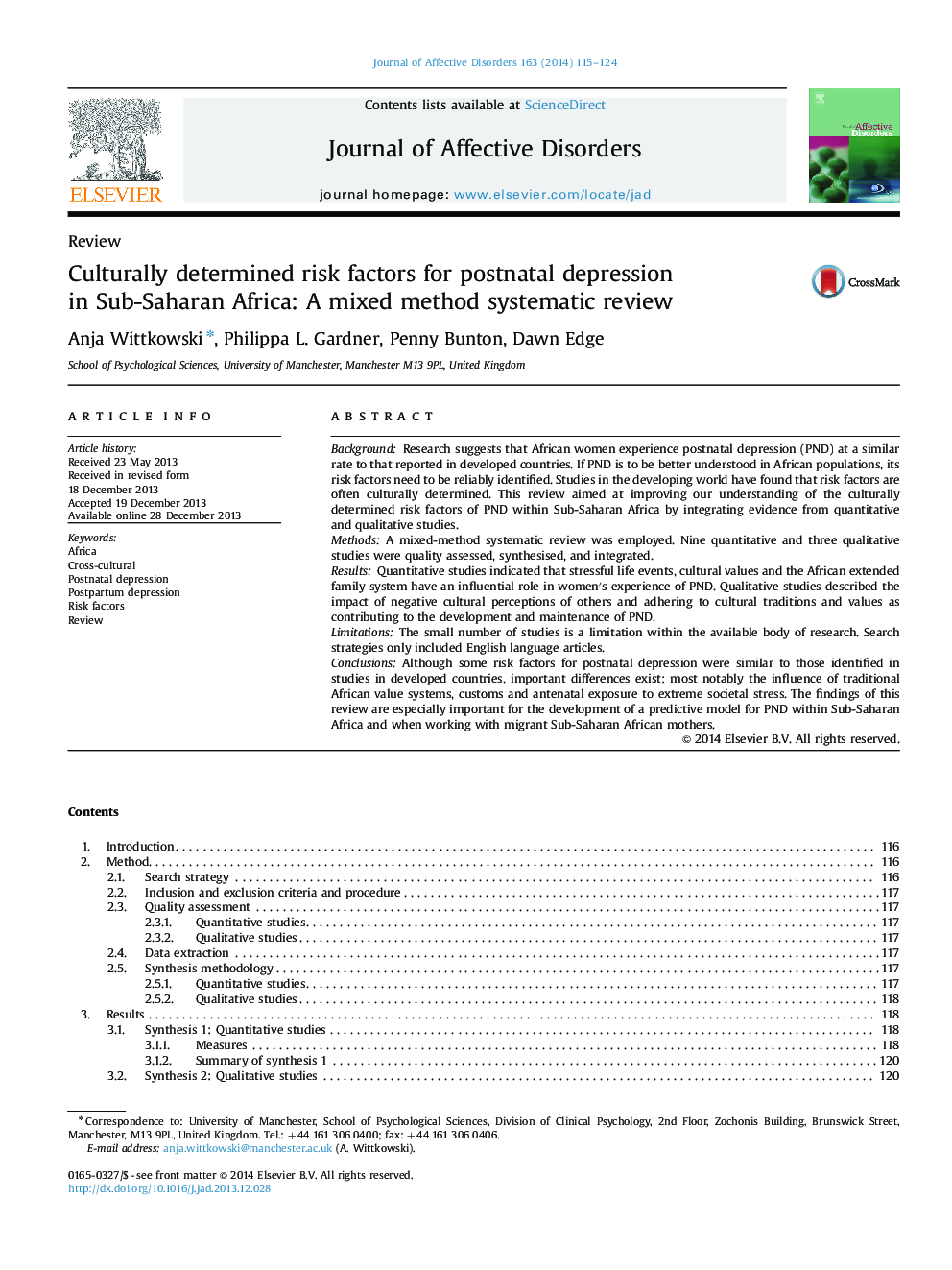| Article ID | Journal | Published Year | Pages | File Type |
|---|---|---|---|---|
| 6233083 | Journal of Affective Disorders | 2014 | 10 Pages |
BackgroundResearch suggests that African women experience postnatal depression (PND) at a similar rate to that reported in developed countries. If PND is to be better understood in African populations, its risk factors need to be reliably identified. Studies in the developing world have found that risk factors are often culturally determined. This review aimed at improving our understanding of the culturally determined risk factors of PND within Sub-Saharan Africa by integrating evidence from quantitative and qualitative studies.MethodsA mixed-method systematic review was employed. Nine quantitative and three qualitative studies were quality assessed, synthesised, and integrated.ResultsQuantitative studies indicated that stressful life events, cultural values and the African extended family system have an influential role in womenâ²s experience of PND. Qualitative studies described the impact of negative cultural perceptions of others and adhering to cultural traditions and values as contributing to the development and maintenance of PND.LimitationsThe small number of studies is a limitation within the available body of research. Search strategies only included English language articles.ConclusionsAlthough some risk factors for postnatal depression were similar to those identified in studies in developed countries, important differences exist; most notably the influence of traditional African value systems, customs and antenatal exposure to extreme societal stress. The findings of this review are especially important for the development of a predictive model for PND within Sub-Saharan Africa and when working with migrant Sub-Saharan African mothers.
